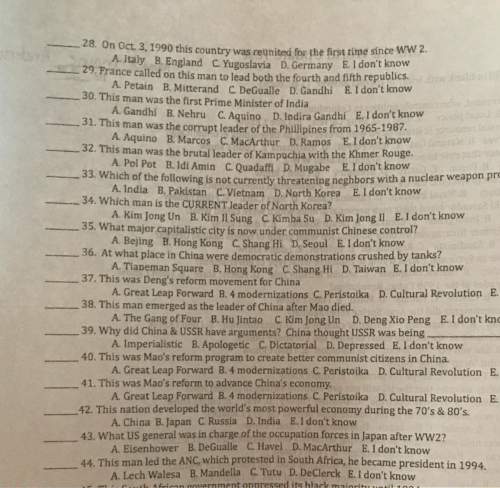
History, 08.09.2021 15:20 jameslinimk
1. What you will need to find out:Information on...Local tribes/language groups and any other relevant information about the land in your regionLanguages/dialects spokenReligious events and ceremonies in the regionKey issues faced by Aboriginal and/or Torres Strait Islander people in the regionAny other information they feel is relevant.2. Reference your research by documenting your information sources in a reference list and/or records of discussions/consultations with local indigenous people. (This could be in the form of email correspondence, phone or face to face discussions or resources provided to you by the individual. Summarise the information you have gathered.)3. Based on the research you have conducted, and on the consultation with the external Aboriginal or Torres Strait Islander, write a report of around 750 words. Your report should cover the following topics:a) Traditional custodians: Summarise the findings you have gathered on the traditional custodians in your area/region. b) Timeline: A historical timeline of significant events that have shaped the history of Aboriginal and Torres Strait Islander people. Include historic policy changes, legislative changes and the extent to which the Government has impacted Aboriginal communities. c) Impacts of settlement on law: The impact of European settlement on Aboriginal and Torres Strait Islander people in relation to law. d) Impacts on land ownership and kinship: The impact of European settlement on the loss of land, loss of kinship and culture for Aboriginal and Torres Strait Islander people. e) Impacts on people: The impact of this trauma for the Aboriginal and Torres Strait Islander people. f) Current issues: Current racism and discrimination against Aboriginal and Torres Strait Islander people and how its roots can be linked to European settlement. g) Considerations for educators: Your understanding of any issues that may influence an educator's relationships and ability to communicate with Aboriginal or Torres Strait Islanders. h) Strategies: Identify and document five (5) strategies to help educators improve their communication with Aboriginal or Torres Strait Islander children, families and colleagues in a service. HINT: You may like to structure your report using a – h as your headings.4. Based on the information collected, create a visual poster which details key aspects of cultural safety for Aboriginal and Torres Strait Islander people and how educators can embed this into educational programs.5. Write a reflective journal of around 300 words. Your reflection should cover the following topics:a) Insights: The new knowledge you acquired about Aboriginal and Torres Strait Islander people that may assist you in promoting Aboriginal and Torres Strait Islander cultural safety. b) Connections: The connections you made to the local community and Traditional Custodians, and how this impacted your cultural competence. c) Communication: Communication strategies you will start to use in order to demonstrate cultural safety. d) Future practice: How your experience in completing this assessment will influence your future practice and

Answers: 3


Another question on History

History, 21.06.2019 23:00
Who was on trial at the nuremberg trials a) japanese military officials. b)nazi leaders. c) communist germans
Answers: 2

History, 22.06.2019 02:00
Me and youin the summer of 1804, after meeting native americans for the first time, lewis and clark reached the eastern edge of
Answers: 1

History, 22.06.2019 06:30
The constitution of the state of georgia provides that any amendment to the constitution must be a) proposed by the governor. b) approved by the judiciary. c) proposed by the general assembly. d) approved the united states supreme court.
Answers: 1

History, 22.06.2019 10:00
To build and maintain civil society, young citizens must be taught the skills involved in activities related to civic engagement. schools address this need with courses like the one you are taking or in civics courses. civil society organizations also provide training activities and other ways of welcoming young people, new citizens, or simply new members into this sphere of activity.other mechanisms exist for ongoing civics training, including video games! watch this brief discussion of how video games and the online world hold the ability to provide safe places for people of all ages to build skills for civil society and perhaps even apply them to their real-world concerns. write one to two paragraphs that reflect on the arguments made in the video about building skills for civil society and civic engagement. you may include an example where you have participated in such an event through a video gaming experience.
Answers: 1
You know the right answer?
1. What you will need to find out:Information on...Local tribes/language groups and any other releva...
Questions

Mathematics, 21.05.2021 23:20

History, 21.05.2021 23:20




Social Studies, 21.05.2021 23:20


Physics, 21.05.2021 23:20

Mathematics, 21.05.2021 23:20



Mathematics, 21.05.2021 23:20


Biology, 21.05.2021 23:20


English, 21.05.2021 23:20







